|
4/9/2024 0 Comments An Interview with Athena
If by Muses, you mean other artists, then there are way too many to name here! EGP: How do you prevent writer’s block or burnout? A: I don’t believe in writer’s block. Either it’s a Bergabesh monster that’s been contrived to create an excuse for writers, or I’ve just never encountered it. When I feel “stuck” it’s usually because the story hasn’t finished cooking in my brainpan, like a dough that’s still rising OR there’s a case of psychological avoidance going on that I need to look at. Usually, I can get through a tar patch by doing something completely unrelated to writing that occupies my hands and creativity; cooking, sculpting, photography—then when I go to sit down and write again the answer is usually there. Doing Creativity in the Round or managing my creative flow through different stations and activities around my home or through my schedule helps prevent burnout. I’d like to say I don’t get burnout, but that would be a lie—I run myself right to the dirt regularly when I get caught up in the joy of the build and forget to stop and breathe. Doing the Creativity in the Round method slows me down. It forces me to get up and move, change creative focus every so often, and switch the sides of my brain so I don’t hit a wall too quickly. EGP: Did you choose to self-publish from the start, or did you seek traditional publishing first? A: Originally, I took the traditional route for publishing. My first contract was with Schiffer Publishing in 2007. When it came time to publish Murder of Crows in 2011, I sent out 120 queries before going the self-publishing path. If I’d known then what I know now—I would have just gone straight to self-publishing. If someone needs the external validation of having been “chosen” or the support of being taken care of through the process—then self-publishing is not for them. However, if you want the creative freedom, control over the speed and outcome and direct access to your readers in a much more intimate forum, then the indie life of self-publishing is a dream come true. EGP: On what platforms do you publish and why? A: I’m currently using KDP and Ingram. I went with Ingram because I love having access to the expanded global distribution for print and the catalog access to large bookstores and small shops as well. While KDP has the digital distribution reach and all the Amazon platforms in multiple countries, there are issues with the print viability on that same matrix—and you can’t be ordered in bookstores if you’re only with Amazon. The Elder Glade Publishing sponsored platform for integrated media distribution should be going live next year, at which time I’ll add the rebooted Pillars of Dawn and Life Erotic series to the new platform, along with our roster of new creators. EGP: What is your process for editing before you publish as an author versus what you are building at EGP? A: Oh, good question. My process for feedback and editing as an author is much more personal and specific to my vision as a creative inside the Mandalic Storyverses I render. So, finding editors, and collaborators who can play or work within those world builds is critical. Those editors must be fluent in story; not just language, not just grammar, spelling, syntax. They need to be well-rounded people with a mind that can take in several layers of context and several interconnected constructs moving interdependently. Editors for EGP will work on several types of projects, so they need to be able to jump back and forth from Mandalic Storyverse to linear three-act structure and so on. All editors whether just for my books, or the works of other artists under the label, or just for marketing and presentation need to be comfortable knowing the difference between the target intention and their own personal preferences and projections. Editors have skillsets and comfort zones just like any creator, so part of EGP planning is matching the right editor with the right story—and not just that but the right part of the right story. From developmental, worldbuilding to copy and line then proof, a book might get five different editors based on their best qualifications and contributions to a work and what the writing needs in order to shine for an audience. EGP: What is your process for feedback? A: It depends on my level of familiarity and trust with the person providing the feedback. I know what I like and what I want—that doesn’t always mean my writing conveys those intentions. Finding someone who’s good at bridging a gap between my intent and the execution--based on the writing and understanding of the worldbuilding materials--to sharpen my intention so I hit my target more accurately and with more impact is the goal. With that in mind, I do a lot of testing with collaborators to see what sticks and who can lunge into a gap and provide that accuracy. A sample of work will tell me if an editor or collaborator is a good “sentence editor” but a larger project will tell me if they are a good “story editor.” The collaborators that I LOVE and hold onto and come back to again and again to build amazing things with, follow these principles.
EGP: What’s the fastest way to get through a pile of feedback notes? A: Just keep asking, “Is this better? Or different?” “Better? Or Different?” EGP: How do you market your books as an author versus a publisher? A: As an author I tended… not to do marketing. As an individual with IPs that I knew would take several years to write, I had nightmares of receiving buckets of hate mail if I couldn’t keep up with readers’ needs. I had actual panic attacks about it. I knew I wouldn’t be able to produce fast enough on my personal budget. So—I kinda tried to stay hidden until I was at least halfway down the pipeline. As a publisher—ALL THAT HAS TO CHANGE. Now we’re out there, and the platform needs to grow. Now is when we’re having the real marketing discussions for how we’d like the label and the artists to be seen, referenced and supported by a visible, yet humane marketing plan. We’ve had many marketing plan discussions with large firms and I’m still not finding those strategies that will be supportive to authors and their works without putting them in uncomfortable public positions that impact creativity and a sense of safety. People on the internet can be awfully cruel, so building a marketing strategy that keeps creatives protected while also allowing them a safe and enlivening portal to the audience is still in development. While social media is a huge part of a marketing plan, it shouldn’t be the only plan. As we talk with firms and develop strategies, we’ll be looking for hybrid solutions to social media and a more local grass roots approach to platform building and marketing. EGP: What is the most important part about writing and publishing stories to you? A: The audience. Always. EGP: What are the most valuable lessons you’ve learned as a writer? A: Don’t edit as you write. Either you’re writing, or you’re editing. Period. Don’t try to do them both at the same time or you’ll slide around your manuscript and get frustrated. (I never drink when I’m writing. However, I do drink, usually a glass of wine, when I’m editing. It slows my thoughts down enough to catch little things and informs my brain, “Hey! We’re looking right now, not building, okay?”) Better yet—just write. Let a real editor do the editing. Save your energetic resources and keep building. EGP: It can be discouraging when a writer publishes a novel that doesn't have commercial success. What advice do you have for writers who get discouraged? A: Everyone believes they’re writing the next best seller, and they probably are! I wish for all writers to know the joy of feeling successful according to their own personal dreams. In the meantime, we all put out a few non-commercial successes. Does that mean they’re duds? Unworthy? We have only our expectations of what success is, and many of us writers don’t even agree on that because it’s so individual per person. Validation comes in many forms, and for many reasons we are often not measuring or even looking for. This means that a book can be a literary success and highly acclaimed, while not bringing in a margin that covers costs. It can also happen the other way around. When authors get discouraged, I empathize. I know how awful it feels to not believe I’ve been successful. Then I bump into a reader or get a piece of fan mail and my perspective just pivots to gratitude that someone somewhere read my little book. It’s hard to cash an imaginary gratitude check to pay the rent. I get it. But the trick I’ve learned is that the sooner I can stop NEEDING the work to pay me, the sooner the work actually pays me. The sooner I can get on board and cheer other people’s successes, and rally behind their achievements… the sooner those miracles happen in my own court. The faster I get to gratitude, joy, and put my hands on the keyboard, then the sooner those things I love will double, and repay all the efforts without me having to feel the emptiness of an unmet expectation.
A: Don’t overthink it. You’ve got a great story. You’ve worked hard to put it into the best form you can. It might not be perfect. We’re not looking for perfect anyway. Hit the submit button and go enjoy your day. In the event we can’t pick you up for any number of reasons, just try again during the next window, or a different publisher, or a different plan. There is nothing on this planet worth a moment of worrying about a submission process. You’ve done your best. Show us what you’ve got and get back to living a full and creative life. EGP: Thank you for your time!
0 Comments
EGP: What is your role as a collaborator and how does that differ from your work at other publishers or with author clients? HR: As a collaborator I am where Athena and Elder Glade needs me to be. I could be writing one day or editing a blog post the next. I sit in on the production meetings, take notes for the editorial team or bring notes from other sectors into the meeting for consideration. All of what I do focuses on the stories that Elder Glade will tell through the various entertainment mediums (books, TV, movies, graphic novels, video games, etc.). As a worldbuilder I collaborate with Elder Glade on the story aspects and help keep the core of the stories intact through the adaptation process. This way fans will recognize the stories being told no matter where they appear and be able to enjoy them all. EGP: What is the most important part of a developmental edit on a manuscript? HR: Nailing the main structures of the story. A developmental edit is the first round of revisions: it is focused on the structure, plot, genre expectations, flow, point of view, and characterization. Your story can bend genre expectations (one of my favorites to work on) but it cannot completely break it. An example is a romance, if it doesn’t end with a form of “happily ever after” and it is a standalone then it is not a romance book. You will anger a lot of romance readers if they pick it up. Consider that false advertising. Once the main structure (or core) of the story is hammered into shape then the focus can move to line edits and copyediting. EGP: What is worldbuilding like outside of working on the book itself? What makes you passionate about the worldbuilding process? HR: Worldbuilding is like playing with Legos. I have a whole bunch of pieces and I get to make whatever the story needs out of them. Eventually I step back and see the city, town, or galaxy that was built on all the writing, editing, and brainstorming sessions. Athena is one of the first people who sees story potential the same way I do. I see a dahlia flower and she sees the many-petaled lotus. All plot threads/characters/events are the petals that link back to the flower/story’s core or center. Mess with the core and the story will fall apart, maintain the core and the story will bloom. Worldbuilding can be done solo, but I love doing it as part of a team. The brainstorming sessions that bloom into a wild vibrant garden because of one or many conversations are more fruitful than alone. I get to hear from one or more people’s perspective and experiences that help shape what the fans eventually see on a page or screen. The best part is seeing the reaction of the audience and hearing all the theories and “ships” that arise out of each story. If I can, I pay attention and see if I can link them into the story (but only if it serves the story). EGP: What is your favorite part of the collaboration process and what holds back an excellent collaboration relationship? HR: I love the conversations that flow during a brainstorming/collaboration session. It is even better if dinner or tea is involved. The “petals” of the story are so much stronger typically at the end of the session because there are at least two brains working together. The more diverse the people contributing, the better the session and story will be. What holds back a good collaborative relationship is a lack of honesty and respect. A good session comes from a place where all the contributors know they can be 100% honest in their feedback and know they are respected even if they disagree. A story is not served if there are any reservations from a team member or if it is an echo chamber. EGP: What book or series not already in adaptation that you wish you could see on the screen? HR: I would love to see anything by Nalini Singh or Ilona Andrews make it to the screen someday. They both have such wild and wonderful worlds, stories, and characters that would be amazing to see in a TV show. Also, as of this posting I want to see Shadow & Bone with the full cast and crew picked up by another network and FINISHED. The worst part of the adaptation process is when they are wonderful and then the adaptation is cancelled before the story has been completed within that medium. The fans are left with a partial story like Firefly. Most of the time the fans don’t get a movie like Serenity that attempts to tie up loose plot threads. EGP: Any advice or tips for editors or writers who want to work on worldbuilding? HR: The first part is deciding what type of story you LOVE to read and want to create. Sci-fi and fantasy are my jams, but I will toss in a little horror, thriller, and mystery to spice up the story for my readers (but only when it makes sense). Then you need to read the genre widely with good authors and mediocre authors. Read the writing craft books associated with that genre as well. As you read, take notes on what is done well and what is not. What makes you laugh and cry? What makes your heartbeat faster? What makes it a “good, bad or okay” book? That knowledge will help you understand how to revise and build a delightful book with your clients or to write one yourself. If you are a planner, start figuring out the core of your story. The pieces that make it yours and what cannot change then extrapolate from there. If you are a pantser, write your first draft and figure out the core at the end of that draft. The biggest part is to have fun, if you are not enjoying the genre you chose, then switch it. Don’t get stuck in a rut and feel obligated to work on something that does not bring you joy. EGP: Thank you, Heather!
I link this moment to the beginning of my love of books. I remember feeling what I can only now describe as both awe and fear—amazed at what their stories offer, and fearful, in a way, of their power. Stories give us countless windows into other worlds, other experiences. They help us to understand and empathize, to teach and inform. And, of course, to entertain and bring joy. Even though I enjoy all the moving parts of crafting a story, and seeing everything come together, it is the final stage, proofreading, that I love the most. I find it so exciting: the book is almost ready, and all that’s needed is a final (finally, the final!) readthrough. I take pride in my ability to ensure all elements are polished and ready to go, ready to enchant readers. EGP: How do you prevent creative burnout? JD: I think some see editing as technical and route, not creative. But writers and editors tap into the same energy—and editing, especially editing fiction, is so much more than indiscriminately applying rules. Editors have to consider the author’s intent, how their word choice reflects the characters and the story, and whether or not a change would add to the work or if it would erase the author’s style. They have to deeply inhabit a creative space in order to do this well, so I think it’s inevitable that we encounter burnout. Over time, I’ve learned to better recognize when I am reaching this point and make sure I take time to rest: when I feel restless or grumpy while working, when I make a lot of simple typos, or when my thoughts start to become sluggish. I try not to push myself and take a break—like a #StetWalk—or sometimes I can feel revived by simply switching tasks. I also do my best to not work on the weekends so I can spend time on my own creative pursuits. EGP: What is your process for feedback? JD: I understand that receiving feedback can be dauting for authors, and at a certain stage of the process too much feedback is a hinder and not a help. With my clients, my main goal is to preserve their voice and vision, so I make edits only where necessary for consistency or clarity. I also include explanations for deeper edits, often referencing the editorial letter, where I provide more context and resources so authors can fully understand my reasoning and then make an informed decision. I also love to celebrate an author’s talent so I include reaction comments in the manuscript as I work. I believe it’s just as helpful for authors to know I was particularly struck by a specific line or image, or if I felt happy, sad, frustrated, moved in some way, where they wanted readers to be moved. At the end of the day, I recognize that it is not my book, and I don’t get to change things just because it’s not how I would write it. My job to make the story, as the author wrote it, the best it can be. EGP: What is the most important part about editing and helping authors to you? JD: I think the most important thing is that an author connects with their chosen audience; we both want readers to feel that same sense of awe I felt all those years ago. So, working with authors to help them realize their creative vision is of the utmost importance. I believe everyone’s voice is valuable, and that we will all deserve a chance to tell our stories. And I will never tire of the thrill I get when I see books on which I’ve worked on the shelves of libraries and bookstores! EGP: What tools or programs do you feel are the most useful in editing or publishing? JD: I love PerfectIt and Word macros! I use them each time I edit, and they go a long in way in helping me ensure consistency and accuracy throughout the manuscript. They also help me save time on small, repeated tasks, which assists in improving my overall efficiency. I also like to use Text Expander for quickly inserting explanations and pointing to further resources as needed. Although I don’t recommend it as replacement for an editor, I like to use the Grammarly web extension to help me catch simple typos and refine phrasing of my emails, social media posts, and the like. There is understandably a lot of chatter right now about AI tools and how they will affect both writing and editing. I’ve delved a little into it myself—trying to understand its capabilities and its limitations—and although I’ve found it useful for helping to generate ideas or gather resources, I realize more just how much it is a tool whose quality and usefulness depends on the knowledge of the user. EGP: What are the most valuable lessons you’ve learned as a fiction editor? JD: That grammar rules are mere guidelines! Well, mostly. Sometimes, a rule is a rule for reason. However, I am a descriptivist not a prescriptivist. Meaning if a line or image is clear and understood by the reader, and is fitting in tone or theme, I feel it’s my job to leave the writing as is. If I applied each and every grammar “rule” indiscriminately, not only would I completely erase the author’s voice but the writing would come across terribly! It would be unclear and hard to read, and devoid of any personality. And isn’t the point of stories to explore the worlds and experiences of others? When you’re starting out as a fiction editor this is something that takes time to learn. Speaking from experience, it’s easy to go overboard on the edits, wanting to prove you know your stuff, without fully considering the author’s intent or the motive behind the character’s choice of words. Even though I rely on my practical knowledge and training to help authors break grammar “rules” effectively, I also rely on my knowledge of stories to know what will best serve the work, and the readers, in the long run. EGP: It can be discouraging when a writer publishes a novel that doesn't have commercial success. What advice do you have for writers who get discouraged? JD: Remember that this is all such a game of luck! What books experience true commercial success surprises publishers all the time. As a bookseller, I can attest to this. There have been times I’m practically tripping over copies of a huge new release the publisher is sure will sell, only to still be tripping over those same piles weeks later as I frantically search for the last copy of some unexpected hit we had way too few of. I’ve also seen great books released quietly, to no big fanfare and that sit gathering dust, suddenly become the hottest title years later. So, you have to decide what success looks like for you. Maybe it’s simply publishing your book and getting it out there, or maybe it’s selling ten copies or getting a 5-star review. The point is to not expect to become “the next Stephen King” or top all the Best Of lists. It’s very unlikely to happen. But that’s okay! YOU DID THE THING! You published a book! You made it further than most, so you’re successful already. Celebrate that. Then, set a succession of small, achievable goals—like a certain amount of copies sold or reviews left on Goodreads—and then celebrate again whenever you hit one. In the meantime, keep creating and work on your next project. Some of your readers have already found you and are impatiently waiting for what you write next! EGP: Editor dream projects or a 10-year plan? JD: According to my new StoryGraph profile, I like books that are reflective, emotional, and dark—so if that’s you, get in touch! I read and have experience with editing many genres, from romance through to horror, but I think it would be really fun to edit a book that plays with structure a little more. My personal favorite example is I Became a Delight to My Enemies by Sara Peters. Otherwise, in ten years, I’d love to be doing what I’m doing now, but on a much bigger scale! Last summer I also had the opportunity to create a webinar for the editorial Freelancers Association, which I rather enjoyed, so right now I am looking into more options to share my knowledge with both authors and fellow editors. Who knows where that will take me! EGP: Thank you, Jennifer!
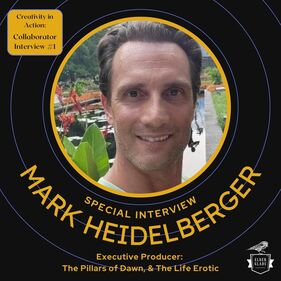 EGP: Can you tell us a bit about yourself? What do you do and how did you get started? MH: Well, I’m a freelance film and television producer. Which is to say I’m a glutton for punishment. I usually get hired by a client who has material, or sometimes just an idea, that they want to turn into a movie or show. I work on it with them until it’s up to snuff, then I help bring on elements like actors, directors and crew, manage the financing, and oversee the creative and logistical process all the way to completion of the project. It’s kind of like being the conductor of an orchestra. I don’t necessarily play any instrument, but I pick the music, then I bring all these talented musicians together and make them play. And I know just enough about each instrument that if something’s out of tune, I can fix it. As far as my humble beginnings, I started working in entertainment about 23 years ago, mainly producing music videos and commercials under a banner I co-founded and ran called Treasure Entertainment. Soon, we started expanding into other areas like music management, literary management and feature film production. I repped a number of film and TV writers and made several low budget films there until 2011 when I finally quit to go freelance. Which was just a better fit for me, as I could focus more on content creation with other filmmakers now that the time-suck of running a company was behind me. EGP: How is working with preexisting IP different from developing original material? MH: Oh, they’re very different. And on a number of levels. With IP, a lot of the core elements have already been created, so you don’t have to spend as much time in ideation. Even if it’s just a magazine article or a short story, you know who your main characters are, the central conflict and the world you’re in. But now it’s a matter of figuring out how to make those elements work within a different medium. For example, in a novel, you can spend six pages discussing a character’s mindset, but that won’t fly in a screenplay where the key is minimalism—saying as much as you can in as few words as you can and making sure it’s visual. Also, preexisting IP often has a fan base already, so you have to weigh how true you want to be to the source material in order to appease those fans against how much you want to change to fit the medium, attract new fans, fit your production budget or whatever the case may be. Adapting formats like books for film and TV can be a challenge because you’ll inevitably have to stray from the book in some ways, if only by cutting out a lot of excess fat that doesn’t translate well on screen, knowing some fans are going to hate you for it. And finally, you have a slightly more complicated legal process with source material—something lawyers in Hollywood like to call securing “chain of title.” Basically, that just means making sure you control all rights to adapt the material going back to the original source. Anything that’s copyrighted or protected by personal privacy rights should be locked up contractually before starting the adaptation process. But with original material, you just start writing and copyright it when you’re done. EGP: What specifically about the adaptation process excites you? And what about it, if anything, stifles you? MH: To be sure, I love the creative process of filmmaking, whether it’s original or adapted material. Same with genre—I love romance, comedy, horror, sci-fi—just so long as it’s a good story. So I’m really kind of agnostic in those ways. But I will say that the adaptation process offers a fun and unique challenge for me—that is trying to take what the original creator did and, while staying true to their story and characters, figure out how to translate that to the visual medium of film and television. It’s a very different process where you are given a framework, and then you must construct something new within that framework. It allows for all sorts of creative choices that are specific to adaptations, like what should stay and what should go, or what needs to be shaped for a new audience while placating the original audience. And this is very exciting to someone like me who is creative, but also thrives on structure. The biggest challenge is that you have to do all this while making the creator of the original material feel comfortable, because an adversarial relationship there will often translate onscreen. And not in a good way. EGP: What do you wish authors knew about the adaptation process in Hollywood? MH: I think the biggest issue for authors is letting go. Book writing is often a very isolated process. You can go off and write a novel completely on your own, and with self-publishing services nowadays, you can even get the artwork done, print thousands of copies and get it on shelves, all without ever really having to deal with another creative. But filmmaking is by its very nature a collaborative process. No one is going to make a movie or TV show by themselves. It takes hundreds. And the entertainment industry has its own (often unspoken) codes and rules and wants. A good producer can help you, as an author, shape your material to fit what Hollywood wants, but you will probably have to make choices you didn’t want or expect to make. Compromises that, perhaps, you said you would never make. Hollywood is a fickle mistress, and getting stuff made is super hard, so the more flexible you can be without undermining the integrity of your story, the better chance you have of seeing your adaptation hit screens. EGP: What are some of the unique challenges of working with superstories designed for transmedia, and mandalic storyverse structures? MH: Wow, that’s a mouthful! So we’re talking about worldbuilding, like Marvel, right? I love the term “storyverse,” by the way. It’s a great portmanteau word that really conveys the essence of building a narrative universe. But of course such stories have their own unique set of challenges. The most obvious one is where is your universe going? And how do you plan for expanded stories five, ten, twenty years down the line? It’s definitely hard, as you see even big companies like Disney and Warner Bros struggle with it. There’s a consistency of vision that can be hard to maintain when dealing with ever-shifting studio objectives and a revolving door of execs with their own eclectic tastes. Not to mention times change and so do audience tastes. There’s no surefire way to eliminate hiccups here, but creators can definitely mitigate issues down the road by laying out detailed written schematics of their universe—either as a bible or a treatment or whatever—and ensuring they maintain as much creative control of the work as possible. Planning for a shift to other media formats is also a challenge, not only because the requirements of, say, a comic book can be very different than a toy line, which can be different from a video game, which can be different from a limited cable series, but also because very few producers have meaningful experience in all of these areas. If you can work with stakeholders that specialize in each medium early enough in the development process, you’re going to be better equipped moving forward to adapt to the needs of that medium. I don’t think I’m saying anything earth-shattering here except to reiterate the importance of effectively communicating the scope, style, rules, characters and goals of your storyverse from the outset. If done right, you’ll eventually be able to take your hands off the wheel knowing that others can take over and steer the ship where you want it to go. EGP: How do you feel about the rapid emergence of AI in the literary world? Is it helpful, harmful or a bit of both? And why? MH: I actually just wrote an article about this for WritersWeekly. A lot of people see AI as this existential threat to human existence. Or in this case, to writers. But AI is not going anywhere, so we need to figure out how to use it effectively. It’s not good or bad; it’s just a tool. Take a hammer. It can be used to build a house or to hurt someone. It’s a thing. It’s how we apply it that will be the differentiator. Just like we don’t blame pencils for making spelling mistakes, we can’t blame AI for how people misappropriate it. Look, AI can’t replace humans because it’s not originative—you need to input information created by humans to get something back — and it lacks the emotional intelligence and reasoning of humans. It’s usually obvious when you read things that were written by AI because it all sounds rote and stiff, right? So you need a human to rewrite it anyway. But if writers eschew overreliance on it and instead use it to accentuate their strengths, whether to assist in ideation or plug holes in structure mapping or increase efficiency by providing real-time dialogue suggestions, it could become just another tool in the writer’s arsenal, like Google search or spellcheck or WordPress. The other big problem with AI right now is the issue of copyright. The US Copyright Office has held that elements created by AI are not protected by copyright, and recent court decisions have affirmed as much. But there are still so many gray areas to be worked out. Like is the use of protected material for machine learning a violation of copyright? And who owns the copyright of an AI-generated work derived from other works? The copyright holders of those original works? So be prepared to see more litigation around this issue in the years to come. EGP: If you could change one thing about Hollywood, what would it be? MH: I would lose the walled-off, nepotistic, protectionist system we currently have, and replace it with one that creates better access for artists and rewards merit. I think such a system would help eliminate a lot of the homogeneity and derivation we see coming out of Hollywood, perhaps ushering in a new golden age where deserving works that would’ve otherwise gone undiscovered get their moment in the sun. I know it’s not realistic, but a guy can dream, can’t he? I mean, after all, that’s why I work in this business. EGP: Thank you so much for your time! 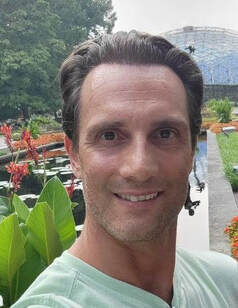 Mark Heidelberger, PGA Mark Heidelberger, PGA Before founding Treasure Entertainment, Mark held positions at Outlaw Productions, Film Roman and literary agency Ken Sherman & Associates. He graduated number one in his class with a Bachelor of Arts in Film Studies from UC Santa Barbara and earned a Master of Fine Arts in Motion Picture and Television Producing from the UCLA School of Theater, Film and Television. He is a member of the Producers Guild of America. Mark has been an active collaborator and developer on The Pillars of Dawn streaming series, and The Life Erotic adaptations. Discover more about Mark here. Be sure to check out his website for the latest news and updates on his upcoming projects. |
Archives
June 2024
CategoriesAll 5 Minute Creativity Adaptation News Collaborators Creativity Challenges Creativity In Action EGP Notes Entertainment News Interviews Launch News Prompts Storytelling Craft Storyverse The Life Erotic The Life Erotic Discovery Journals Twin Flame World Building Writing Craft |
Search by typing & pressing enter

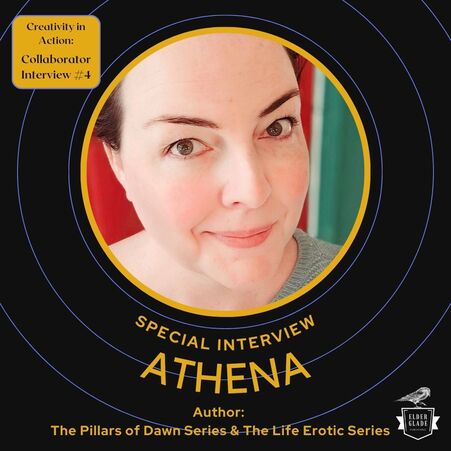
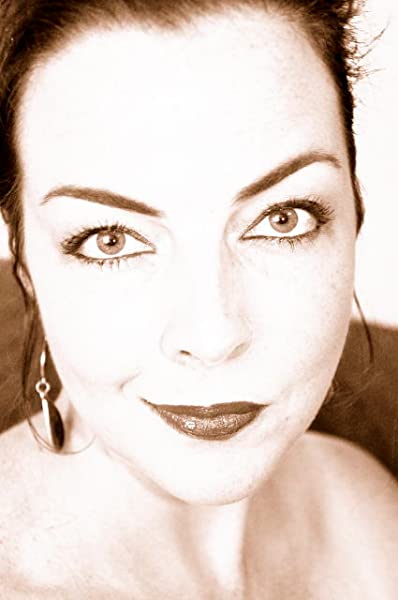
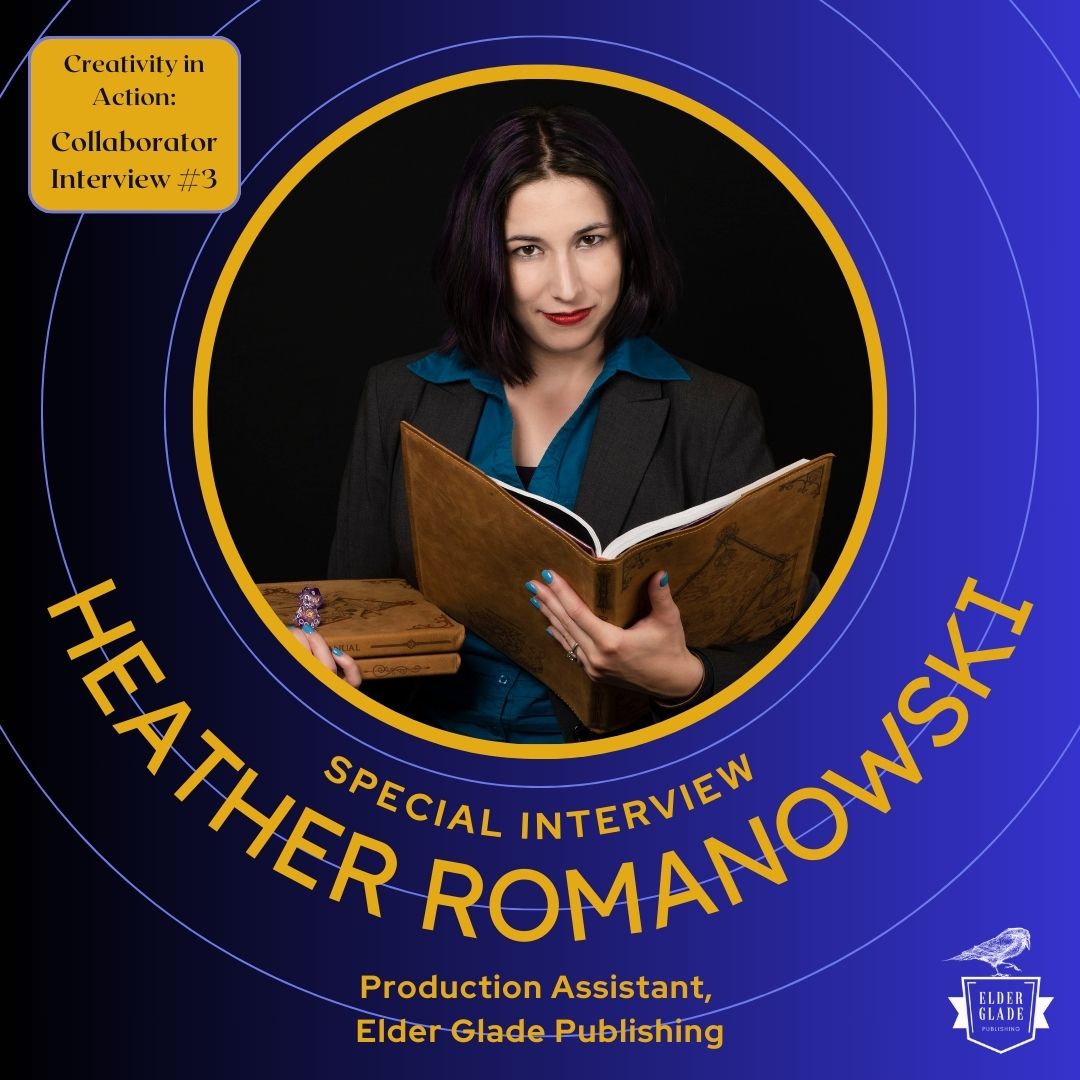
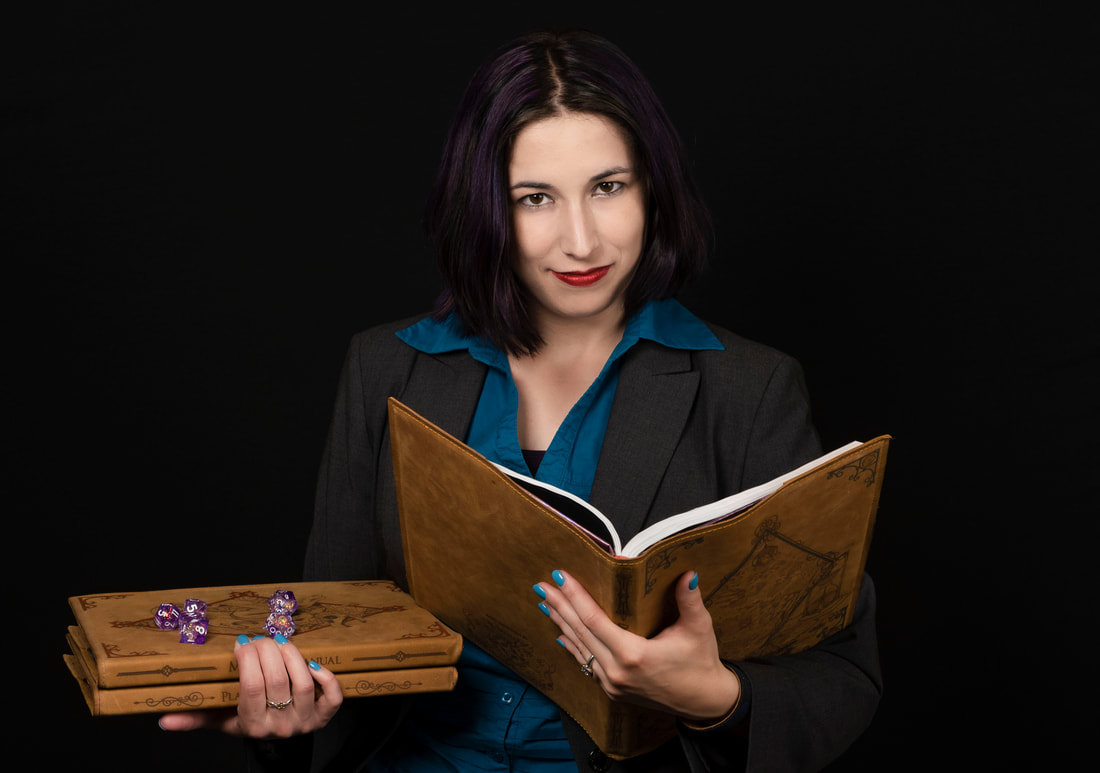
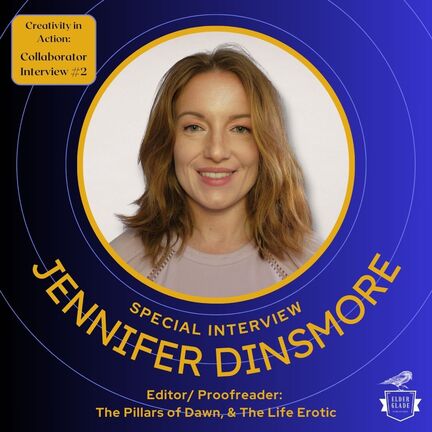

 RSS Feed
RSS Feed